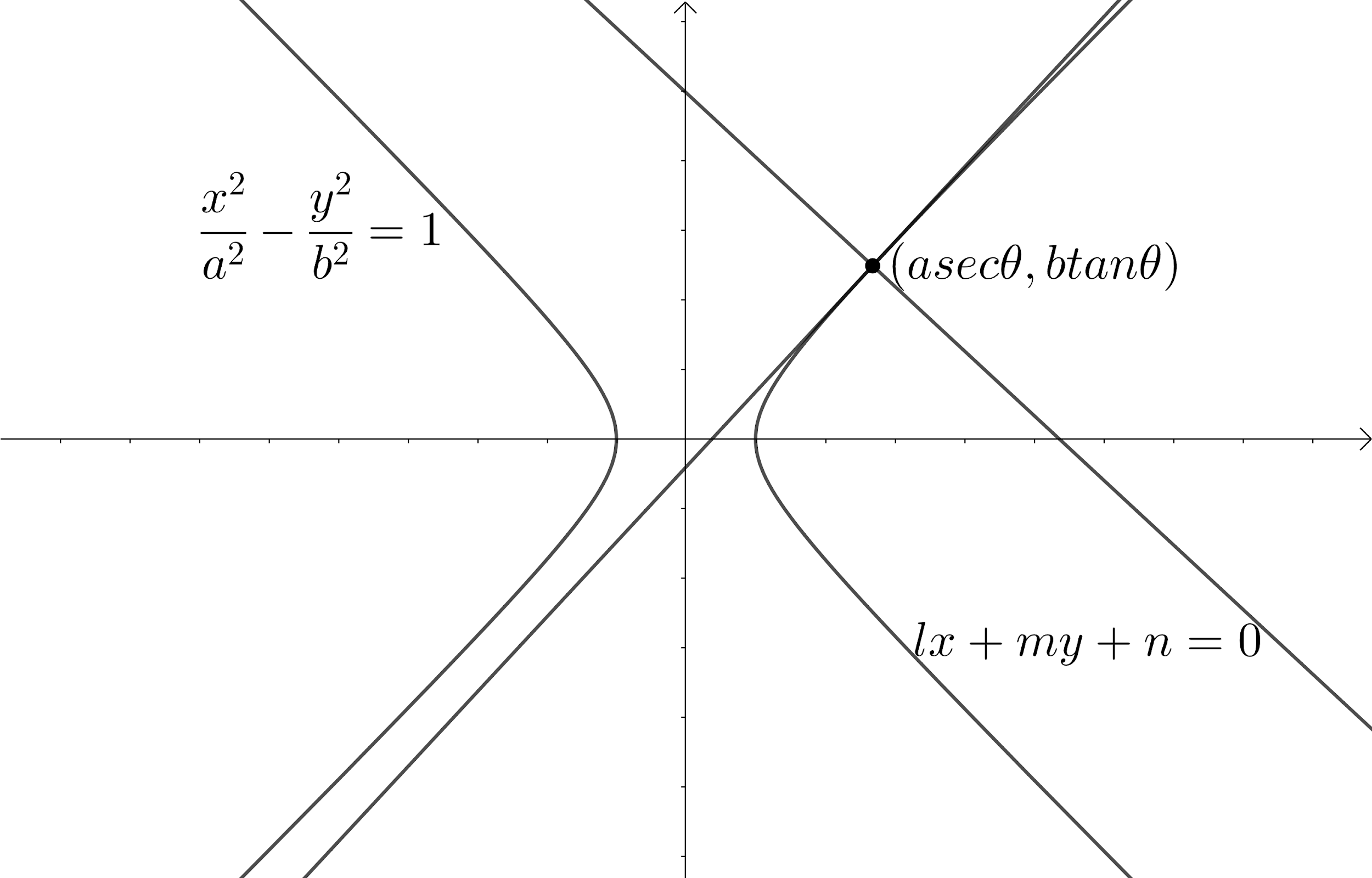Question
Question: If the line \[lx+my+n=0\] is a normal to the hyperbola \(\dfrac{{{x}^{2}}}{{{a}^{2}}}-\dfrac{{{y}^{2...
If the line lx+my+n=0 is a normal to the hyperbola a2x2−b2y2=1, then show that l2a2−m2b2=(na2+b2)2?
Solution
We start solving the problem by using the fact that the parametric equation of the normal of the hyperbola a2x2−b2y2=1 is secθax+tanθby=a2+b2 and rearrange the terms in it to get the equation in the form of px+qy+r=0. We then compare the coefficients of x, y and constant terms of the obtained equation of normal with lx+my+n=0 to find the values of l, m and n. We then assume l2a2−m2b2 and substitute the values of l and m and make necessary calculations to get the required result.
Complete step by step answer:
According to the problem, we are given that the line lx+my+n=0 is a normal to the hyperbola a2x2−b2y2=1. We need to show that l2a2−m2b2=(na2+b2)2.

We know that the parametric equation of the normal of the hyperbola a2x2−b2y2=1 is secθax+tanθby=a2+b2. Let us rewrite this equation in the form of px+qy+r=0.
So, we get the equation of the normal as secθax+tanθby−(a2+b2)=0---(1).
According to the problem, we are given that lx+my+n=0 is normal to the hyperbola. So, let us compare this equation with equation (1).
So, we get l=secθa, m=tanθb and n=−(a2+b2) ---(2).
Let us consider l2a2−m2b2. Let us substitute the results obtained from equation (2) in this.
⇒l2a2−m2b2=(secθa)2a2−(tanθb)2b2.
⇒l2a2−m2b2=sec2θa2a2−tan2θb2b2.
⇒l2a2−m2b2=sec2θ−tan2θ.
We know that sec2θ−tan2θ=1.
⇒l2a2−m2b2=1 ---(3).
We know that (−1)2=1. Let us use this in equation (2).
⇒l2a2−m2b2=(−1)2.
⇒l2a2−m2b2=(−(a2+b2)a2+b2)2.
From equation (2), we get
⇒l2a2−m2b2=(na2+b2)2.
So, we have proved l2a2−m2b2=(na2+b2)2.
Note: We can also find the slope of the normal first by using the facts that the point on hyperbola is of form (asecθ,btanθ) and slope of the tangent by using dxdy(asecθ,btanθ). We should not make calculation mistakes while solving this problem. We can also use the fact that if two lines a1x+b1y+c1=0 and a2x+b2y+c2=0 are identical to each other, then a2a1=b2b1=c2c1 to solve the problem.
